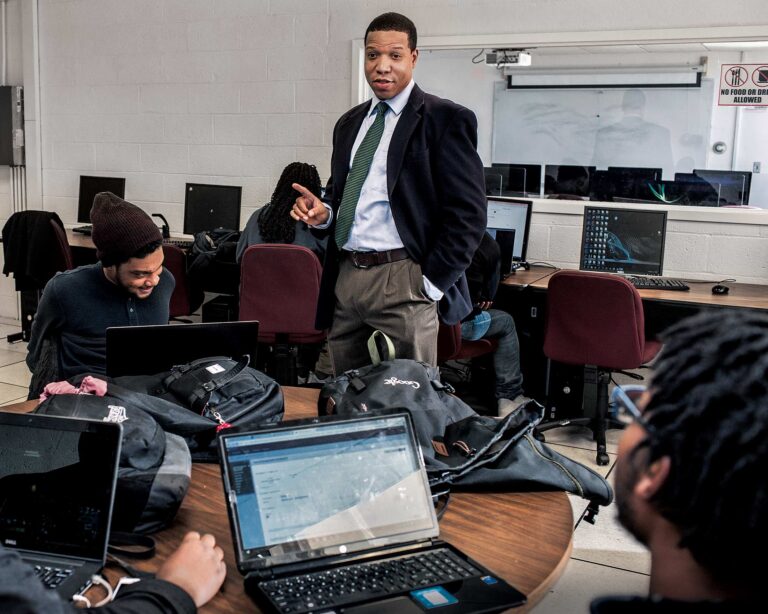
Meaning of Classical Realism in International Relations
Classical realism is one of the oldest theories in international relations and focuses on the inherent flaws of human nature as the driving force behind the conflict and competition in the international system. Classical realists believe that the desire for power, domination, and self-interest stems from human nature, which leads states to behave in aggressive, competitive, and sometimes selfish ways.
The theory emphasizes that international politics is a struggle for power among states in an anarchic system, where no central authority exists to regulate state behavior. The roots of classical realism can be traced back to ancient political philosophers like Thucydides, Niccolò Machiavelli, and Thomas Hobbes, who believed that human nature is inherently selfish, and the desire for power is universal.
Key Features of Classical Realism
- Human Nature as the Root Cause:
- Classical realism argues that the basic impulses of human nature, such as greed, fear, and the desire for power, drive political behavior. States, like individuals, are naturally inclined to seek power and pursue their own interests at the expense of others.
- This pessimistic view of human nature is central to classical realism. Thinkers like Thucydides (in his account of the Peloponnesian War) and Thomas Hobbes (in Leviathan) argued that human beings are fundamentally selfish and that conflict arises from this innate drive for survival and domination.
- Power as the Central Element:
- For classical realists, power is the most important concept in international relations. States seek to acquire and maintain power to ensure their survival in a world without a central governing authority.
- Power can take many forms—military, economic, political—but classical realists emphasize military power and the ability of states to defend themselves or project force as key components of national security.
- Anarchy in the International System:
- Classical realists, like neo-realists, believe that the international system is anarchic. There is no overarching authority to govern the behavior of states, and each state is responsible for its own survival. This lack of a higher authority creates a constant condition of insecurity.
- In this anarchic world, states are constantly concerned about the intentions of others and must rely on their own capabilities to secure their interests. This leads to the pursuit of power as a means of protection.
- State-Centric Approach:
- Classical realism sees states as the primary actors in international relations. States are considered rational, unitary actors that act in their own national interest, which is primarily focused on security and power.
- Other actors, such as international organizations or non-state actors, are secondary to states in classical realism, as they do not have the same power and influence over international politics.
- National Interest and Survival:
- The national interest, particularly the interest in survival and security, is a central concern for classical realists. States act in ways that they believe will best ensure their survival, often prioritizing power and security over moral or ethical considerations.
- Decisions are made based on the pursuit of national interest, with the understanding that other states are also pursuing their own interests in a competitive international environment.
- Pessimism Toward International Cooperation:
- Classical realism is generally pessimistic about the possibility of long-term international cooperation. Since states are inherently driven by the need for power and survival, cooperation is seen as temporary and conditional.
- Alliances and treaties are made out of necessity but can be broken when they no longer serve a state’s interests. Realists believe that cooperation is fragile and will often collapse when power dynamics change or when states see opportunities to gain more advantage.
- Ethics and Morality in International Politics:
- Classical realism tends to view morality and ethics as secondary to power and national interest. Realist thinkers like Machiavelli argued that rulers must sometimes act unethically to ensure the survival and success of the state.
- While moral considerations are not entirely absent in classical realism, they are often seen as less important than practical concerns like security and power. States must act in ways that maximize their advantage, even if those actions conflict with moral or ethical principles.
- Historical Continuity:
- Classical realists believe that the fundamental nature of international relations has not changed over time. The struggle for power, competition among states, and the anarchic structure of the international system have been constants throughout history.
- This view sees international politics as cyclical, with the same patterns of power struggles and conflicts repeating across different eras and political systems.
- The Role of Leadership and Statesmen:
- Classical realism places significant emphasis on the role of leaders and statesmen in shaping foreign policy. Since leaders are influenced by their understanding of power and human nature, their actions are critical in determining how states behave.
- A strong, decisive leader is seen as essential for navigating the dangerous and competitive international environment. Leaders must be prepared to make tough decisions and prioritize the survival and power of the state over moral or ideological concerns.
- Conflict and War as Inevitable:
- Classical realism holds that conflict and war are inevitable features of the international system. Since states are driven by power, competition for resources and security often leads to conflict.
- While states may seek peace when it serves their interests, war is a natural outcome of the competition for power and survival in an anarchic system. War is seen as a tool for achieving national objectives and maintaining the balance of power.
Key Thinkers in Classical Realism
- Thucydides :

- Often cited as one of the earliest classical realists, Thucydides wrote about the Peloponnesian War, highlighting the role of power, fear, and self-interest in driving conflict between Athens and Sparta.
- Niccolò Machiavelli :

- In his work “The Prince,” Machiavelli emphasized the need for rulers to be pragmatic, strategic, and willing to act ruthlessly to maintain power and ensure the security of the state.
- Thomas Hobbes :

- Hobbes’ “Leviathan” described the state of nature as a brutal, anarchic world where life was “nasty, brutish, and short.” He believed that human nature’s selfishness led to conflict and that states must secure themselves in such a world.
- Hans Morgenthau :

- A 20th-century realist, Morgenthau was one of the most influential figures in modern classical realism. In his book “Politics Among Nations,” he argued that politics is governed by objective laws rooted in human nature, and states act according to their national interests defined in terms of power.
Conclusion
Classical Realism offers a view of international relations shaped by the constant pursuit of power and the competitive nature of states in an anarchic system. Rooted in a pessimistic understanding of human nature, classical realism emphasizes the role of power politics, conflict, and the national interest, while downplaying the importance of ethics, morality, and long-term cooperation. The insights of classical realism continue to influence modern international relations theory, particularly through its emphasis on the balance of power and the role of states in global politics.







